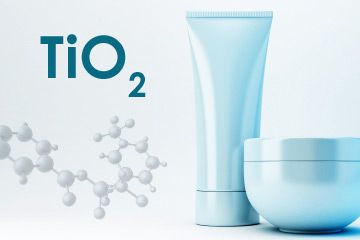Named for the colossal Titans of Greek mythology, titanium has the highest ratio of tensile strength to density of any metal on Earth. Titanium alloys (blends of titanium and other metals) boast the highest strength-to-weight ratio of any metal on the planet. Pure titanium is as strong as steel, but 45 percent lighter.
Titanium's impressive strength-to-weight ratio has made titanium alloys the go-to materials for airplane engines and bodies, rockets, missiles — any application where metal components need to be as tough and lightweight as possible. Although it's not a particularly rare metal, it is expensive because of the cost to mine and produce it.
The Airbus A380, the largest passenger aircraft in the world, includes 77 tons (70 metric tons) of titanium, mostly in its massive engines.
Thanks to a metallurgical innovation in the 1930s called the "Knox process," commercial forging of titanium went into full swing in the 1940s and 1950s. The first application was in military aircraft and submarines (both American and Russian), and then commercial aircraft in the 1960s.
The Discovery of Titanium
Way back in 1791, an amateur British mineralogist and church pastor William Gregor scooped up some curious black sand in a stream near the town of Cornwall. Some of the sand was magnetic, which Gregor determined was iron oxide, but the other material was a mystery. It was another oxide for sure, but not one on the books at the Royal Geological Society.
German chemist, Martin Heinrich Klaproth rediscovered the odd oxide in 1795 and gave it its mythological name, titanium oxide, after the deities that preceded the Olympians in Greek mythology
Even though it was discovered in the late 18th century, pure titanium wasn't isolated from its oxide until 1910, when American chemist Matthew Hunter, working for General Electric, figured out how to strip the silvery metal from its oxide under high heat and pressure in a sealed "bomb."
Titanium Does Not Rust
Corrosion is an electrochemical process that slowly destroys most metals over time. When metals are exposed to oxygen, either in the air or underwater, the oxygen snatches up electrons, creating what we call metal "oxides." One of the most common corrosive oxides is iron oxide, aka rust.
But not all oxides expose the underlying metal to corrosion. When titanium comes into contact with oxygen, it forms a thin layer of titanium dioxide (TiO2) on its surface. This oxide layer actually protects the underlying titanium from corrosion caused by most acids, alkalis, pollution and saltwater.
Titanium's natural anticorrosive properties make it the ideal material not only for aircraft, but also for undersea components that are exposed to highly corrosive saltwater. Ship propellers are almost always made from titanium, and so are the ship's internal ballast and piping systems, and onboard hardware exposed to seawater.
Titanium Lives in Body Parts, From Head to Toe
That same thin layer of titanium dioxide that protects titanium from corrosion also makes it the safest material to implant into the human body. Titanium is fully "biocompatible," which means it's nontoxic, nonallergenic and can even fuse with human tissue and bone.
Titanium is the surgical material of choice for bone and joint implants, cranial plates, the roots of dental implants, pegs for artificial eyes and ears, heart valves, spinal fusions and even urethral stints. Studies have shown that titanium implants trigger the body's immune system to grow bone directly on the titanium surface, a process called osseointegration.
Other reasons why titanium is the go-to for hip replacements and pins for fractured bones is that titanium has that famously high strength-to-weight ratio, which keeps implants lightweight, plus it exhibits the same exact elasticity as human bone.
Titanium Swings in Golf Clubs and Other Sports Equipment
As the price of pure titanium came down in the late 20th-century, manufacturers began looking for more commercial applications for this wonder metal. Titanium's lightweight strength made it a great fit for sporting goods.
The very first titanium golf clubs hit stores in the mid-1990s, including a giant driver from Callaway known as Great Big Bertha. The clubs were expensive compared to steel or wood drivers, but their success led other sports manufacturers to dabble in titanium.
Now you can find titanium in any piece of sports equipment where weight, strength and durability are key: tennis rackets, lacrosse sticks, skis, bicycle frames, baseball bats, hiking and mountain climbing equipment, camping gear and even horseshoes for professional racehorses.
White Paint (and Cake Icing) Has Titanium In It
Only 5 percent of the 6.3 million tons (5.7 million metric tons) of titanium produced every year is forged into metal. The vast majority is turned into titanium dioxide, the same material that naturally protects titanium from corrosion. Titanium dioxide is used worldwide as a nontoxic whitening pigment for paint, cosmetics, medicines and food, including white cake icing.
White paint used to be dyed with a lead-based pigment, but once the health effects of lead were known, titanium dioxide took over. It turns out that titanium-based pigments have some cool properties.
House painters choose titanium-based white paints because they are anticorrosive and last longer. Titanium oxide is extremely refractive, giving it a natural brilliance greater than a diamond and producing a particularly bright shade of white.
Titanium oxide also reflects infrared light, which is why titanium-based paints are always used on the exterior of solar observatories to disperse infrared light that blurs images.
Sources
Ed. Jonathan Law and Richard Rennie. A Dictionary of Chemistry (8 ed.). 2020. (Oct. 10, 2023). https://www.oxfordreference.com/display/10.1093/acref/9780198841227.001.0001/acref-9780198841227
Deziel, Chris. "What Are the Top 10 Strongest Metals on Earth?" Sciencing. Mar. 13, 2018. (Oct. 10, 2023). https://sciencing.com/top-10-strongest-metals-earth-2595.html
"Mohs hardness." Encyclopedia Britannica. Sept. 15, 2023. (Oct. 10, 2023). https://www.britannica.com/science/Mohs-hardness
"Tensile strength." Encyclopedia Britannica. Sept. 22, 2023. (Oct. 10, 2023). https://www.britannica.com/science/tensile-strength.
"Tungsten, W." MatWeb. (Oct. 10, 2023). https://www.matweb.com/search/datasheet_print.aspx?matguid=41e0851d2f3c417ba69ea0188fa570e3
WebElements. (Oct. 10, 2023). https://www.webelements.com/



